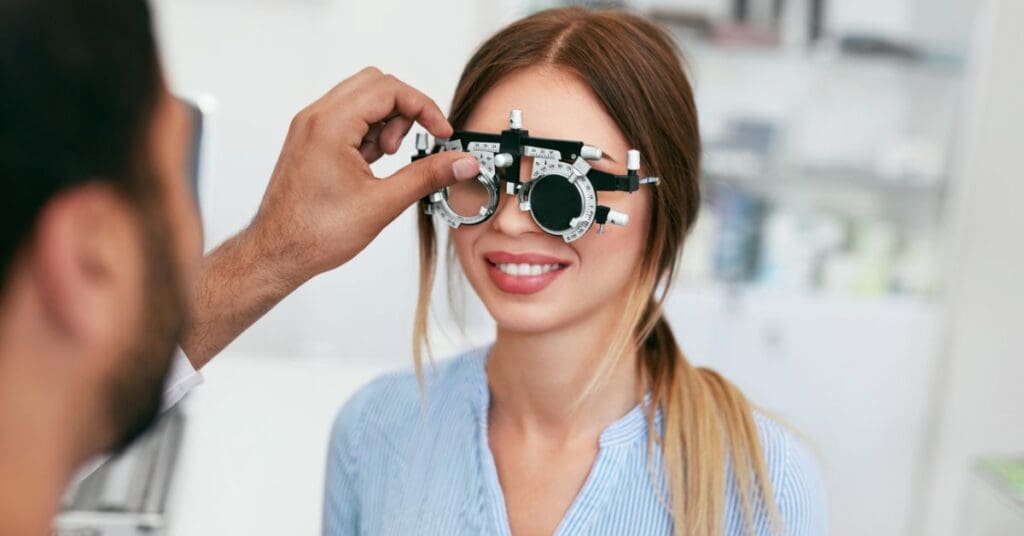How Vision Centers Differ from Optical Shops: A Guide for Patients
When it comes to eye care, the terms “vision center” and “optical shop” are often used interchangeably. However, these facilities serve distinct roles in maintaining eye health. Optical shops primarily focus on eyewear like glasses and contact lenses. On the other hand, vision centers provide a more complete approach to eye care, often including medical and surgical treatments.
What is a Vision Center? Full-Service Eye Care Explained

A vision center provides a wide range of eye care services including:
- Comprehensive Eye Exams: Using state-of-the-art diagnostic technology to screen for vision problems and detect underlying eye disorders.
- Medical & Surgical Treatments: Managing conditions like glaucoma, cataracts, and macular degeneration.
- Treatment for Eye Diseases: Addressing diabetic retinopathy, dry eye syndrome, and managing conditions like retinal detachment and corneal disorders.
- LASIK Consultations: Evaluating candidates for vision correction surgery.
- Personalized Eye Care Plans: Tailored treatments for both medical conditions and vision correction.
What is an Optical Shop? A Focus on Eyewear Sales

Optical shops chiefly focus on vision correction through eyewear, offering:
- Prescription Glasses & Sunglasses: Expert guidance on frames and lenses.
- Contact Lens Fittings: Ensuring proper fit and vision correction.
- Eyewear Adjustments & Repairs: For better comfort and functionality.
- Lens Customization: Offering options like anti-glare coatings or progressive lenses.
While some optical shops perform basic vision tests, they generally do not provide medical or surgical eye care.
Why Choose an Ophthalmologist?
Ophthalmologists are medical doctors with extensive training in eye care including:
- Four years of medical school
- Residency focused on eye surgery and disease management
- Specialization in diagnosing and managing complex eye conditions
The ophthalmologists at The Eye Center offer cutting-edge treatments beyond what optical shops or optometrists can provide.
When to Visit an Ophthalmologist vs. An Optometrist
See an ophthalmologist at a vision center if you:
- Experience sudden vision changes or eye pain
- Have a history of eye diseases like glaucoma or diabetic retinopathy
- Need medical or surgical treatments such as cataract removal or LASIK.
An optometrist at an optical shop is ideal for:
- Purchasing prescription glasses or contact lenses
- Adjustments and repairs for eyewear
- Basic eye exams
How Vision Centers, Optical Shops, and Ophthalmologists Can Work Together
These providers often collaborate to deliver full-spectrum eye care. A patient might:
- See an ophthalmologist for a medical evaluation.
- Follow a treatment plan (Rx eyewear, diet, surgery) for any eye condition.
- Stop by an optical shop to fill their prescription for glasses or contacts.
This partnership ensures you get both the medical attention and the vision correction you need.
At The Eye Center, we go beyond vision checks, we protect your eye health. Our patients benefit from the highest level of care thanks to a team of board-certified ophthalmologists. We are the premier choice for world-class medical and surgical eye care.
When you choose us, you prioritize both clear vision and long-term eye health. To schedule an appointment in Huntsville or Madison, contact The Eye Center at 256-705-3937. Experience the exceptional care that sets us apart.
